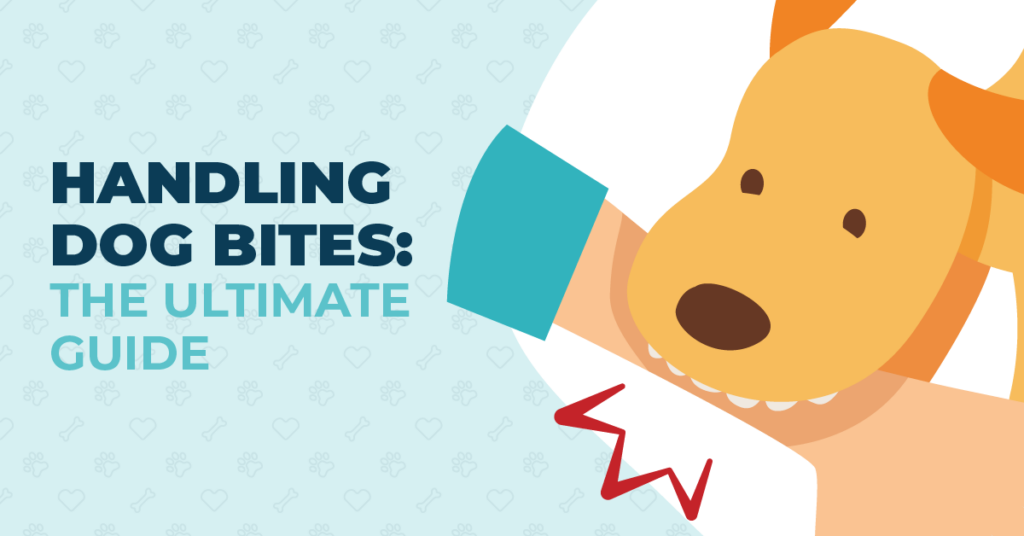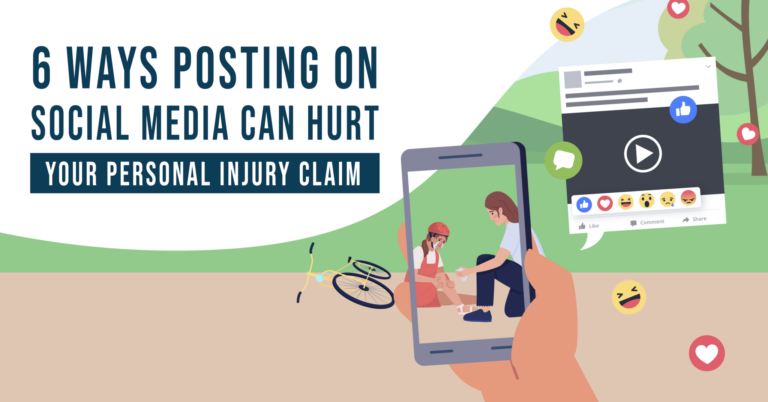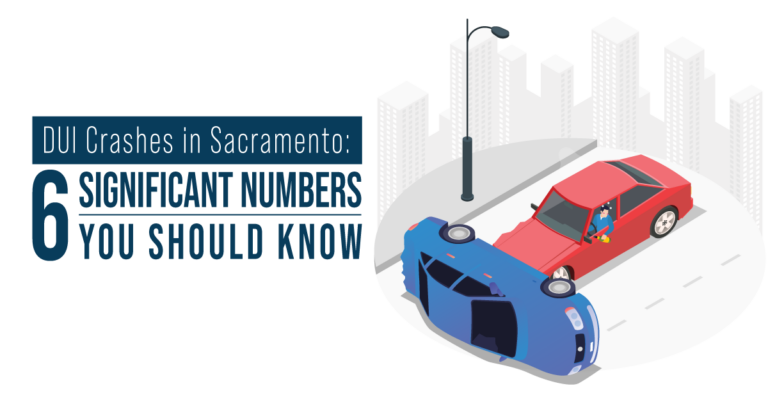
Whether you are a dog lover or tend to shy away from these furry creatures, you wouldn’t want to get bitten by one.
Unfortunately, dog bites happen more often than you may realize. In the U.S., more than 4.5 million people are bitten by dogs each year. Of these, more than 800,000 seek medical attention for the resulting injuries.
If you or a loved one has been attacked and injured by another person’s dog, you must know what to do following the incident to protect your health and insurance claim.
The infographic below presents the steps to take after a dog bite, the typical insurance coverage amounts and restrictions for dog bites, and essential tips for filing a dog bite claim.

5 Steps to Take After a Dog Bite
If a dog has bitten you, it’s crucial to tend to the injury immediately. First, assess if you can treat the wound by yourself or if you need medical attention. Then, administer first-aid accordingly to reduce your risk of bacterial infection.
Here’s what to do after a dog bite:
1. Wash the wound
Immediately wash the wound with mild soap. Then, run warm water over it for 5 to 10 minutes. Thoroughly cleaning the bitten area will help remove bacteria and prevent possible infections such as tetanus, sepsis, and rabies.
2. Stop the bleeding
If the bite has broken your skin, it’s essential to stop the bleeding. If the wound is bleeding heavily, try to elevate the injured part to slow the bleeding. Ask someone to take a clean cloth or gauze and gently press down on the wound until the bleeding stops.
Do not remove the material if blood soaks through it. Instead, put more cloth or gauze on it and continue to apply direct pressure.
3. Apply antibacterial ointment to the wound
If the bleeding has stopped, look for any available antibacterial ointment you can apply to the wound. This measure will help disinfect the wound and decrease your chances of getting any infection.
4. Cover the wound with a sterile bandage
After disinfecting the wound, cover it with a sterile bandage. The dressing will absorb discharge from the wound and protect it from bacteria in the environment.
5. Watch for signs of infection
Last but not least, watch for signs of infections like redness, swelling, increased pain, and fever. These symptoms require that you see a doctor immediately.
Homeowner’s Insurance: Coverage Amounts and Restrictions for Dog Bites
Certain factors can affect insurance coverage for a dog bite treatment. Here are some of them:
- The typical coverage ranges from $100,000 to $500,000
Homeowner’s insurance may cover dog bites as part of personal injury claims. In instances where the policyholder has opted into dog bite coverage, the insurance may typically cover $100,000 up to $500,000.
Also, homeowner’s insurance may cover dog bites that occur off-property. For instance, if you were bitten in a park or at the beach, you may seek compensation for your injuries even if the available coverage is homeowner’s insurance.
In California, the dog owner is strictly liable for injuries sustained by anyone bitten by their dog. This applies whether the victim was in a public place or lawfully on private property when the dog bite incident occurred.
Under the California Civil Code, a person is lawfully on private property when they are performing a duty imposed on them by law or if their presence is at the owner’s express or implied invitation.
- Some insurance companies exclude coverage for certain dog breeds
Some insurance providers exclude certain dog breeds from coverage to avoid having to pay expensive dog bite claims. Wolf breeds and muscular dogs with thick chests are commonly excluded from coverage. These include:
– Alaskan Malamutes
– Akitas
– Doberman pinschers
– Great Danes
– German Shepherds
– Presa Canarios
– Pit bulls
– Rottweilers
– Staffordshire terriers
– Siberian huskies
Some insurance companies also do not cover dogs with a history of aggression, biting someone, or damaging property. In addition, some policies exclude the following:
– Indirect injuries resulting from the dog’s aggressive behavior
– A dog biting its owner or another household member
Under the law, these instances free the owner from dog bite liabilities:
– Provocation: The dog bit the victim after being provoked by the latter.
– Assumption of risk: Kennel staff, veterinarians, dog groomers, and other related occupations that assume control of dogs may not hold the owner liable since they are presumed to be aware of the risk of being bitten due to the nature of their job.
– Trespassing: The victim did not have the legal right to be on the dog owner’s premises.
– Law enforcement animals: Police or military dogs carrying out government-related tasks are excluded from coverage.
- The insurance policy often does not cover intangible injuries caused to the victim
A homeowner’s insurance policy typically covers only the victim’s physical injuries resulting from the dog bite. As such, it often does not consider intangible injuries that a dog bite incident may have caused to the victim.
Suppose you are suffering from trauma or emotional distress as a result of a dog bite incident. In this instance, you may not be covered by the animal owner’s renter’s or homeowner’s insurance. Your alternative is to file a dog bite case or personal injury claim against the owner to get compensation for your emotional distress.
Filing a Dog Bite Insurance Claim: 5 Important Tips
Here are essential tips to keep in mind when pursuing a dog bite insurance claim to ensure that you get the compensation you deserve for your dog bite injuries.
1. Be sure to report the incident
If a dog has bitten you, be sure to report the incident immediately to the police and animal control authority. A police report will support your insurance claim and personal injury case if you decide to pursue one later on. Filing a dog bite report will also alert authorities to conduct investigations that can help prevent similar animal attacks.
2. Immediately seek medical attention
It’s vital to seek medical attention as soon as possible after a dog bite incident. The type of assistance you should seek would vary depending on the severity of your injuries.
If the bite resulted in serious injuries like broken arms, lacerations, or excessive bleeding, immediate treatment is necessary. The sooner you get professional help, the better your chances of making a full recovery.
On the other hand, if the injuries are mild, you may initially administer first aid to prevent possible infection but you must still seek medical attention afterward.
3. Be sure to complete your treatment
A wound could get severely infected during recovery if you refuse to complete the treatment recommended by your doctor. If this happens, you will need to be hospitalized and administered antibiotics. As a result, additional medical expenses will accrue.
The insurance provider can use your non-compliance to the treatment schedule as a ground to exclude your case from coverage. For instance, the insurance company can fight not to cover the medical costs, as you could have avoided the additional expenses by completing your dog bite treatment.
4. Gather all relevant evidence
While you’re getting initial treatment, be sure to document the incident by taking photographs and videos of the wound. Also, keep your treatment receipts and other medical records. It’s likewise essential to get in touch with the witnesses, if there are any, for their testimonies.
These pieces of evidence will be relevant to your claim, especially if you develop long-term complications resulting from dog bite injuries. Providing these proofs will also make it difficult for the insurance company to dispute your claim should you need to describe your injuries later on.
5. Talk to a personal injury attorney right away
Before pursuing a dog bite insurance claim, it’s recommended that you talk to a personal injury attorney first. An experienced dog bite lawyer can guide you in navigating the process and give you advice on how to deal with the insurance company.
They can also obtain relevant documents on your behalf such as police reports, medical records, and the dog owner’s policy to assess coverage. Ultimately, they can help increase your chances of getting compensation for your injuries.
Get the Compensation You Deserve
Some dog bite victims shy away from filing a report or claim due to various reasons. For instance, some put off pursuing a complaint because they are friends with the animal’s owner. Others do so because they think it’s not worth their time.
If a canine has bitten you, immediately file a report to strengthen your claim and prevent similar incidents from happening. Also, be sure to consult a personal injury lawyer before pursuing a dog bite claim to increase your chances of being fairly compensated.
If you need a personal injury attorney in Orange County, reach out to us at RMD Law. Our experienced lawyers are ready to provide you with thorough legal representation. Contact us for a free case evaluation!
- Bicycle Accidents in San Francisco: How Safe Are Cyclists? - July 10, 2023
- 6 Ways Posting on Social Media Can Hurt Your Personal Injury Claim - July 5, 2023
- DUI Crashes in Sacramento: 6 Significant Numbers You Should Know - July 3, 2023


